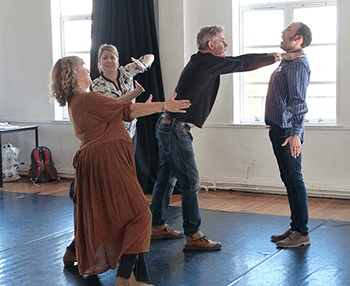
Classroom Management for Drama Lessons
The challenge of managing the classroom during drama could be why some teachers are reluctant to teach the subject. Drama lessons are there to encourage free expression, so doesn’t this just lead to noise, over-excitement and even fighting? In the worst-case scenario, this could be the case. However, with the right approach, the teacher can lead a productive and rewarding drama session where pupils can learn to express themselves emotionally, verbally and physically, develop teamwork skills and remain on-target.
Top Tips
-
Begin with clear aims and objectives and let these guide the activities.
-
Is the content right? Will it grab students’ attention and imagination, challenge and extend their learning?
-
Establish a calm atmosphere with explicit expectations of behaviour.
-
Give unambiguous explanations and cues to the students and keep them on task.
-
Encourage students to respect one another’s work by giving and receiving feedback to each other.
-
Be aware that students need to grow in confidence and give them the techniques and support for this.
-
Consult the students about acceptable guidelines for working in the space.
-
Allow time for reflection so that students can discuss, write about or otherwise process their learning.
Preparation
As in any teaching, it is essential that you prepare for the drama lesson with clear aims and objectives. If you just go into the class with a file of drama games and the idea of having fun, chances are you will end up with a lively and out of control group before very long. However, drama games and techniques can be used productively if they are put in the right context. If you are clear about what you are trying to achieve, you can communicate this to the students so that they understand the purpose of the lesson and individual tasks. Each child needs to understand what their role or responsibility is in the drama. Outline the session at the beginning, then clarify each activity as you proceed.
Routine
Pupils need to be aware of your expectations of acceptable and unacceptable behaviour during drama activities. Establish a routine from the start. If pupils are coming into a designated space for drama, in the hall or studio, then explain how they should behave from the beginning. This could be sitting quietly in a circle or at one end of the room. In the drama lesson there will be a different level of noise and movement than in other lessons, so it helps to establish an unambiguous ’Stop’ signal. This could be as simple as you raising one arm in the air, which should be followed as quickly as possible by all the students stopping what they are doing, facing you and raising one arm in the air as well.
Activities
When introducing individual activities, explain the steps involved clearly before you give pupils the signal to start. There is nothing worse than beginning by saying, ‘I want you to work with a partner ’. You will lose students’ attention immediately as they focus on who they want to work with. Explain what you want to achieve through the activity, how they will be expected to do this, how much time they should take and finally whether they will be working on their own, with a partner or in a group. Now you can give them the signal to move into groups or into a space, ready to begin. During the activities, move from group to group to help them negotiate with one another and remind them of the aim of the task. When the time is up, ask all the groups to sit down.
Sharing and Feedback
If the drama activity involves performing or sharing work that groups have prepared, then you need to help students develop good audience skills. While groups are waiting to show their own work, they may prefer to continue discussing their ideas instead of watching and listening to each of the other groups. One way around this is to encourage groups to make positive comments about each others work. When the first group is in place, nominate another group whose task it will be to feedback on the performance. When the first group has finished showing the work, ask for three positive comments from the nominated group. In this way groups will be encourage to watch one another, to give supportive comments and to notice what they could do to improve their own work. Another good way of sharing work in a controlled way is through a technique called Spotlight.
Increasing Confidence
One reason why pupils may become unfocussed is through lack of confidence. Freeze frames can be a very effective technique for introducing students to performance and instilling confidence. Composing and selecting freeze frames is a very focussed activity which does not involve remembering lines or movement. However, once pupils are familiar with the technique you can introduce thought tracking, then bring the scene alive for a few moments with Action Clip This is a useful step for moving from the use of still images to improvised drama. Give a signal by clicking your fingers to begin and end the sequence. The action begins with the still image and ends at a suitable moment of your choice – before the performers run out of steam. After a few sessions of working in this way students will become more confident about improvising and presenting short scenes.
Agreeing the Rules
After a few sessions you can involve the students themselves in classroom management by helping to establish clear rules. Ask them what they think would help the sessions to run smoothly. Brainstorm some rules and guidelines and write them onto large pieces of paper which could be put onto the wall of the space. These could be edited with the students consensus into a list of rules and guidelines which each student is given a copy of, or which is displayed in the space. Then, when you point out inappropriate behaviour you can refer to the rule or guideline that the students have agreed to. Don’t be surprised if you find the students themselves referring each other to the list. After all, many students probably prefer a focussed and productive session where they can attain a sense of achievement and enjoyment.
Working in this way will bring more focus to your drama sessions and give you the confidence to try such enjoyable techniques as Teacher in Role and Conscience Alley so that you can structure your own Drama Lessons without having to worry about problems with discipline.
Taken from Learning Through Drama in the Primary Years by David Farmer.



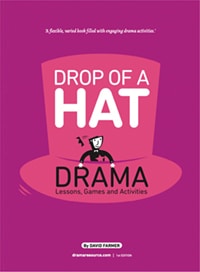
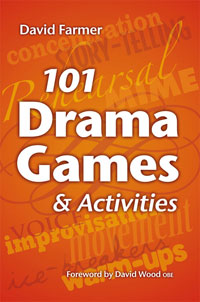
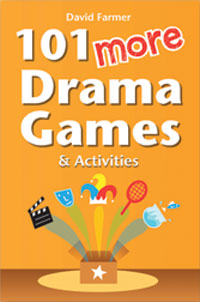
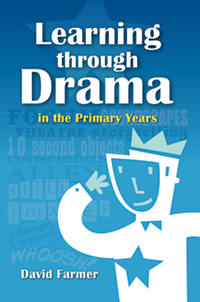
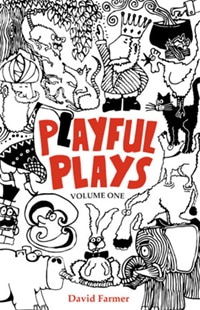
You must be logged in to post a comment.